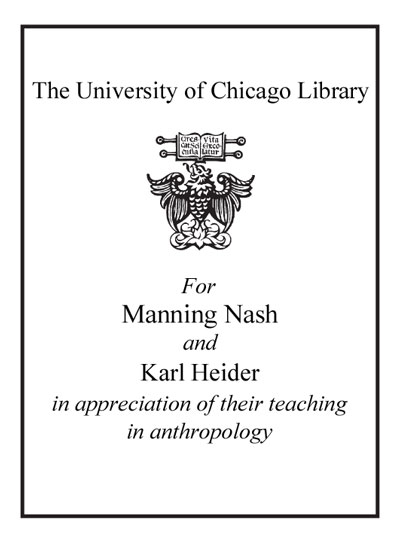Review by Booklist Review
Among the central questions in science that awaits answering is who we are and where we come from, as Stanford notes in the introduction to his provocative new look at what made people so smart. The author's contention that the desire for meat and the hunting, eating, and sharing of meat have been major driving forces in human evolution is supported in seven interconnected essays. Each covers one aspect of the author's belief that meat is the essential "recipe" for the expansion of the human brain. Drawing from his own research on chimpanzees, Stanford also bases his discussion on new insights he draws from the behavior of other great apes and hunter-gatherer human societies. One interesting speculation involves the evolution of bipedalism as a means of increasing the distance early hominids could travel while foraging. This increased the possibility of finding meat, which led to actively looking for meat (hunting), which led to greater social interactions involving meat, which led to greater intelligence. This is a fascinating book, written for the nonspecialist. --Nancy Bent
From Booklist, Copyright (c) American Library Association. Used with permission.
Review by Publisher's Weekly Review
Many people believe that the one trait that most sets humans apart from the rest of the animal kingdom is our intellectual capacity. Determining the evolutionary forces that led to such a qualitative difference between us and our nearest relatives can be viewed as the grail of those who study human evolution. Stanford (Chimpanzee and Red Colobus), an anthropologist at the University of Southern California, does a solid job of summarizing the wealth of often contradictory material bearing on this quest. He concludes that "the origins of human intelligence are linked to the acquisition of meat, especially through the cognitive capacities necessary for the strategic sharing of meat with fellow group members." Stanford's thesis is different from those postulated previously because of his focus on the sharing of meat and on the role that nonhunters, particularly females, have played in structuring group cohesion as well as interpersonal relationships. In prehuman groups, he contends, meat became the first commodity, not unlike money today, that could be used to acquire power, traded for sexual relations or bartered for other valuable resources. Stanford's ideas, while controversial, are amply documented by behavioral studies of nonhuman primates, anthropological studies of a number of human societies and archeological studies of early and pre-humans. (Mar.) (c) Copyright PWxyz, LLC. All rights reserved
(c) Copyright PWxyz, LLC. All rights reserved
Review by Kirkus Book Review
An unabashed celebration of the carnivorous tendencies of early humankind. Virtually every aspect of Stanford's thesis about the importance of meat acquisition and sharing among early humans is steeped in controversy. Early evolutionary models of Man the Hunter were largely dismissed in the 1970s due to the tendency of these theories to focus on male-dominated activities while ignoring the important nutritional contributions of women in hunter- gatherer societies. Stanford (Anthropology/Univ. of Southern Calif.) attempts to sidestep this issue by focusing on the social, rather than nutritional, value of meat, which is acquired primarily by males and then used to manipulate and coerce females into sexual relations. He bases his theory primarily on the hunting activities of large apes, such as chimpanzees, orangutans, and bonobos, but includes modern hunter-gatherer societies in his survey of higher-primate hunting practices. His casual association between chimp and human hunting practices is certain to enrage ethnographers who have been attempting for several decades to dismiss the notion that modern hunter-gatherer societies can serve as a model for understanding early human activities. The absolute lack of fossil evidence to support the idea that an increased desire for meat in the diet was related to, or affected by, the explosion in intelligence and brain size in early man is also certain to keep Stanford's critics from readily accepting his findings. Perhaps the most provocative aspect of Stanford's argument is the notion that meat-sharing rituals may lie at the heart of the origins of patriarchal society. The gender-specific nature of hunting and the social elevation of meat-sharing activities may, he claims, provide the original basis for male dominance in human culture. The biological essentialism and mechanistic view of cultural activities propounded by Stanford here is not likely to sway many of the critics who wished to discredit the Man the Hunter model in the first place, but may find favor with those inclined toward sociobiology.
Copyright (c) Kirkus Reviews, used with permission.
Review by Booklist Review
Review by Publisher's Weekly Review
Review by Kirkus Book Review


